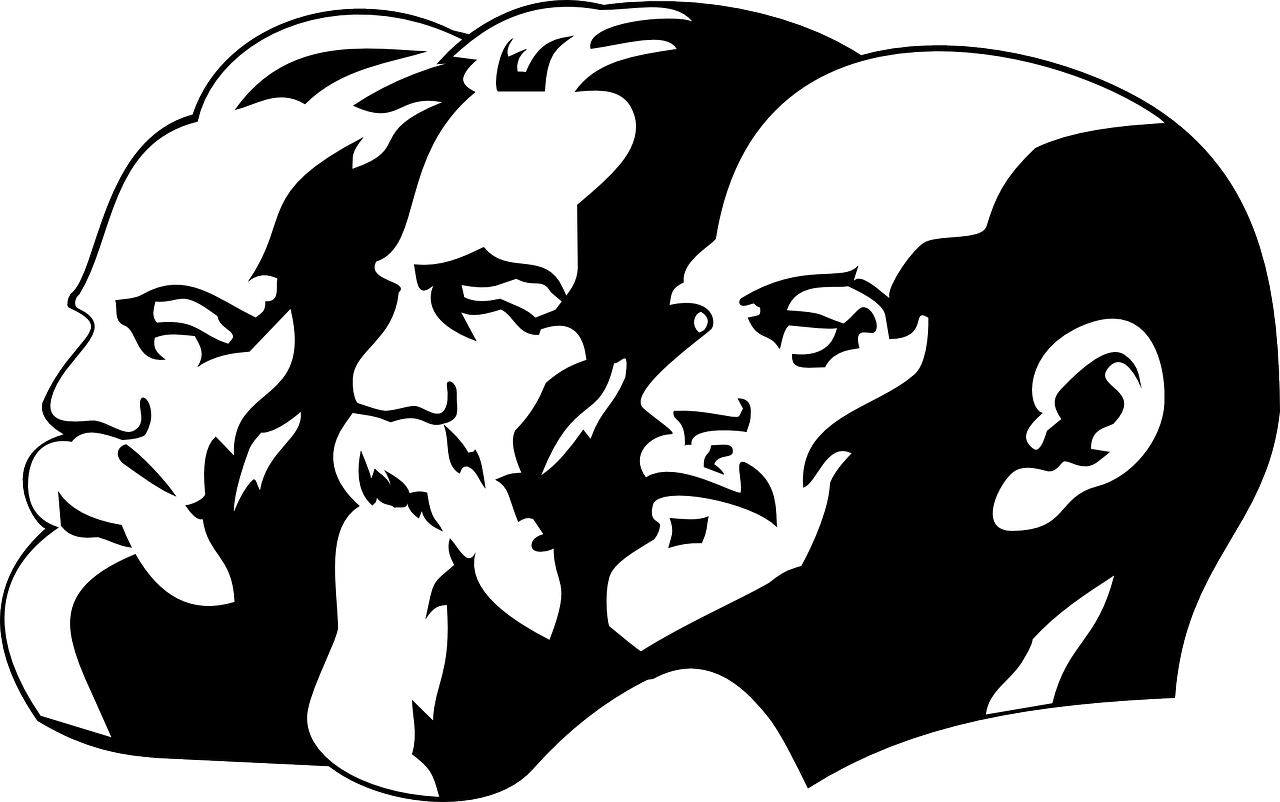Free market against Socialism: Why the worst get on top?
Amal Anzari is a budding researcher in the field of International Relations and is a recent Masters graduate in International Studies.
Simran completed her Bachelor’s in Economics from St. Stephen’s College in 2018 after which she pursued a Master’s in Public Policy from St. Xavier’s College, Bombay.
“The more the state ‘plans’, the more difficult planning becomes for the individual”.
Friedrich Hayek
The argument for which, Austrian-British economist, Hayek is best remembered appeared in 1944 in ‘The Road to Serfdom’[1]. It is an illustration of the classic debate between advocates of free markets and socialism, especially tyranny. Of this, one of the chapters, Why the Worst Get on Top, talks about totalitarianism and its appeal to the society at large. In this chapter, Hayek questions the moral basis of collectivism, i.e., what moral views will be produced by a collectivist organisation of society, or what views are likely to rule it? He concludes that there is no reason why collectivism would serve as the breeding ground for highest virtues and morals, but will depend on individualism and whether the person ascribes to a collectivist or totalitarian system.
Hayek’s work, written amidst the chaos ensuing the Second World War, states that totalitarian systems are not accidental by-products, but are due to the historical accidents that were established by assuming and or unassuming individuals. These are the ones who have now provided the society with a dictator who has now been confronted with either assuming dictatorial powers or abandoning their plans completely. Thus, the choice is between disregard of ordinary morals versus failure.
Following World War II, Hayek and others in the Austrian School formed the Mont Perelin Society, which acted as a guiding influence on the free-market think-tanks that arose during the breakdown of the Keynesian consensus in the 1970s. He argued that market economies produced an efficient order. At the time, there was a growing enthusiasm for government intervention and central planning. Hayek argued that all attempts to impose a collective order on society are doomed to failure. He said they would lead, inexorably, to the totalitarianism of fascism or Stalinist communism. According to him, attempts by the socialist state to dominate people’s lives would lead to similar tyrannies and this is precisely why ‘the worst climb to the top’!
Since all planning necessarily acts against the ‘spontaneous order’ of the market, it can only occur with a degree of force, or coercion. The more that a government draws up plans and imposes them, the more coercion is needed. As governments are poorly informed about the detailed workings of the market, planning is bound to steadily fail in its aims, while becoming increasingly coercive to compensate for those failings. At that point, society would lurch towards a totalitarian state, in which all freedom was extinguished, however, moderate the planners’ initial goals.
Hayek gives out three main reasons why a totalitarian system is not likely to be formed by the best but rather by the worst elements of any society. If given a closer look and taken from a 21st-century political context, it is interesting to note that what Hayek stated in the 1940s drives home the point especially in today’s global political scenario. The rise in populist rhetoric across the world in the second half of the 21st century and its various trajectories resonates with Hayek’s reasoning. He points out that “if we wish to find a high degree of uniformity and similarity of outlook, we have to descend to the regions of lower moral and intellectual standards where the more primitive and “common” instincts and tastes prevail.” He also talks about the ‘us versus them’ trajectories.
With the birth of Neoliberalism (a new approach to an economic policy adopted by the governments of Margaret Thatcher in the UK and Ronald Reagan in the USA that made it globally significant), nationalised industries were privatised and governments rolled back their intervention in the workings of the market. Neoliberalism closely followed the ideas of the once-maligned Austrian School and after the Soviet Union collapsed, this gave further impetus to the apparent triumph of Hayekian themes in politics. Across the world, even those parties once most adamantly opposed to free markets came to believe that there was no viable alternative, including Britain’s Labour Party- who had been the direct target of Hayek’s ‘Road to Serfdom’.
Creating dictatorships: Hayek argued that state interference in economies is wrong and will ultimately lead to repression. His stance was as much anti-communist as it was pro-capitalist. He argued that the freedom and democracy of the West were bound up with its free-market economies, while the tyranny of communist regimes, with their planned, centralized economies, removed this freedom.
Collective tyranny: In a situation of continual ignorance, Hayek argued, the market is the best available means not to provide information, but to acquire it. Each individual and every firm knows their own situation best: they have goods and services people demand, they can plan for the future, and they see the prices that are relevant to them.
Thus, ‘spontaneous order’ was the best available means to organise a complex modern economy, given that knowledge about society can never be perfect. Private property and contracts are legally sacrosanct, and free society must observe rules that bind all parties- including the state itself. Hayek was broadly in favour of democracy, but critical of its inclination in some cases towards a “democratic tyranny of the collective”.
Planners always assume that power would only be wielded by the wisest and kindest of people. But in practice, Hayek pointed out how the unscrupulous and uninhibited are more likely to wield power and be more successful, thus, wreaking havoc on the rest of the people. In the end, it seems befitting to highlight how under economic liberalism, we all wish to preserve a free society!
While the 1940s example in Germany was between the Nazi regime versus the Jews, today it is a contestation between the elites and the common folk. The ideological conformity that Hayek prescribed in 1944 remains relevant to this day. Hayek talks about individualism when the world had considerably fewer examples to show. In today’s world order, it has been proven time and time again that the exercise of humanitarian feelings, or more likely the lack of it, has led to regimes and totalitarian leaders that showcase a lack of regard for the same.
Socialist or Economic calculation debate:
Von Mises’ 1920 article ‘Economic Calculation in the Socialist Commonwealth’ carried a simple challenge [2]. He said that production in the modern economy is so complex that the information provided by market prices, which is generated through the rivalry of many producers focused on making profits, is essential to planning. We need prices and profits to establish where the demand lies and guide investment.
Free-market economists seemed unable to offer theoretical counter-arguments to socialism. But then in 1920, Austrian economist Ludwig von Mises raised a fundamental objection, claiming that planning under socialism was impossible. Von Mises ideas started a debate between Capitalism and Socialism, called the ‘Socialist Calculation Debate’ or ‘Systems Debate’.
The socialist calculation debate, also known as the ‘economic calculation’ debate is a dialogue on how a socialist economy would perform in the absence of the law of value, money, financial prices for goods and private ownership of the means of production. It is a debate that focuses on whether the application of economic planning for the allocation of the means of production as a substitute for capital markets would be superior to capitalism in terms of efficiency and productivity.
Thus, this debate centres on the central planner’s ability to make economic plans that would lead to an effective and efficient allocation of society’s economic resources. This debate began in the 1920s when Ludwig von Mises argued in his article that economic calculation cannot be made and that rational central planning is impossible. According to Mises, central planners cannot make economically efficient plans because in socialism no market exists and hence no market prices. The socialist calculation debate has forced one to acknowledge individual liberty and a society that is structured on libertarian principles.
Conclusion
“In the Socialist commonwealth, every economic change becomes an undertaking whose success can be neither appraised in advance nor later retrospectively determined. There is only groping in the dark”.
– Ludwig Mises
Von Mises and his supporters in the Austrian School of economics did not believe that societies reach equilibrium. They argued that economies are in constant disequilibrium; they are always changing and participants are surrounded by uncertainty. In 1934-35, Economists Lionel Robbins and Friedrich Hayek also emphasised the practical problems with socialism- such as the scale of computation required and the absence of risk-taking. Without private ownership and rivalry, there is little information or incentive for efficient production.
Hayek led the response to market socialism, arguing that only the free market could provide the necessary incentives and information. The free flow of information between individual sellers and vendors results in the correct pricing of goods. Centrally planned economies, on the other hand, impose the view of one person or committee, curtailing individual freedom to communicate and firms’ ability to trade. For instance, the totalitarian state of North Korea suffered regular shortages and famine, which Economists of the Austrian School claimed was the inevitable result of central planning that ignored markets.
At the time of independence, the Indian economy too needed a direction, which was crippled by foreign subjugation. The Planning Commission came into existence in March 1950 since the politicians opted for a ‘planned economy’ to carry out socio-economic development. In Indian economic history, for the first eight Plans, the emphasis was on a growing public sector with massive investments in basic and heavy industries. But, since the launch of the Ninth Plan in 1997, the emphasis on the public sector became less pronounced and planning became more of an indicative nature. However, successive governments found it hard to meet the set targets since high levels of inflation rendered the plan’s financial budgeting erroneous. This is a classic example of how economic planning is adverse to economic development. It is an inefficient way to use the knowledge available to the community as a whole since centralized economic planning tends to be cumbersome and rigid.
In recent times, with the emergence of the digital political economy, big data revives the possibility of a planned economy. However, it poses a grave danger concerning privacy concerns and what George Orwell propounded as ‘Big brother is watching you’, raising ethical considerations [3]. In an economy, we observe how planners often have a noble purpose, but for their plans to work, it needs the full ‘cooperation’ of everyone to create a level-playing field for both local as well as foreign players. Therefore, to decipher whether economic policies and institutions are effective, it is imperative to judge if they advance ‘human freedom’.
References
[1] Hayek, F. A. (1944). The Road to Serfdom. Chicago, IL: University of Chicago Press.
[2] Mises, L. (1920). Economic Calculation in the Socialist Commonwealth. Translated by S. Adler,https://www.mises.ch/library/Mises_Economic_Calculation_in_the%20Socialist_Commonwealth.pdf
[3] Orwell, G., Pimlott, B., & Davison, P. H. (1989). Nineteen eighty-four. London: Penguin Books in association with Secker & Warburg.
Image Credit: Needpix








